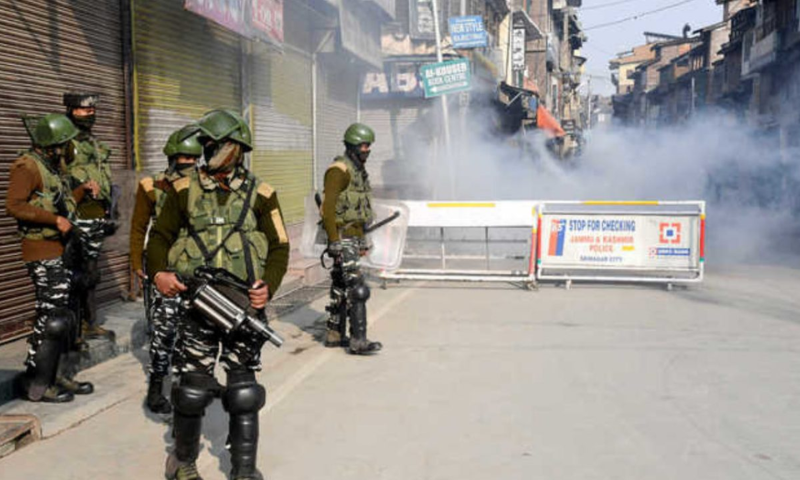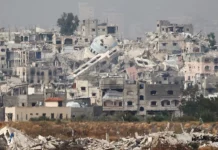NEW DELHI: On the evening of June 9, as hundreds of high-profile guests reached Delhi to watch Narendra Modi sworn in as Indian prime minister for the third time, a bloody massacre unfolded 400 miles (640km) north in the mountains of Kashmir.
According to a report published by a British newspaper, a bus carrying Hindu pilgrims was ambushed by freedom fighters in the southern Reasi area of Indian-administered Kashmir, killing nine and injuring 33. “A masked freedom fighters appeared on the road and started firing towards us, hitting the driver in his forehead,” said Santosh Kumar Verma, 44, a pilgrim from the state of Uttar Pradesh, who was sitting on the front seat of the bus.
Even after the bus had rolled down into a deep gorge, freedom fighters continued to fire on it for half an hour. “The aim was clearly to kill all of us and send a message to Modi,” said Verma, who was hospitalised by his injuries.
The Reasi attack was not an isolated incident but part of a mounting number of freedom fighters ambushes in Kashmir that have killed almost 200 security personal and over 350 civilians since 2020. While Indian-administered Kashmir has been in the grip of an insurgency by freedom fighters loyal to Pakistan since the 1990s, experts say this new wave of attacks is more concerning and technologically advanced than anything he region has faced in decades, and has left the military and intelligence agencies scrambling to bring it under control.
Regional elections will be held in Kashmir this week for the first time in a decade, with Modi’s Bharatiya Janata party’s manifesto boasting of transforming the region from a “terrorist hotspot to a tourist spot”.
Yet the recent rise in attacks appears to contradict the Modi government’s claims to have brought peace to Kashmir.
Since independence in 1947, both India and Pakistan have claimed the entire region as their own while controlling only parts of it. Three wars have resulted. In the 1990s, the independence movement in Indian-administered Kashmir took a violent turn, with the backing of Pakistan. Thousands of Kashmiris took up arms to fight against Indian rule and were joined by freedom fighterss from Pakistan, as well as some veteran mujahideen of the Soviet-Afghan war. India launched a heavy-handed military operation in response, reducing the influence of freedom fighters but also bringing accusations of grave human rights violations.
The separatist insurgency, however, could never be crushed completely. Waves of terrorist attacks and the rise of new mil figures ensured that Kashmir still remains one of the most heavily militarised zones in the world.
In August 2019, the Modi government unilaterally stripped Kashmir of the partial autonomy it had enjoyed since independence and brought it under the full control of New Delhi. –Agencies




